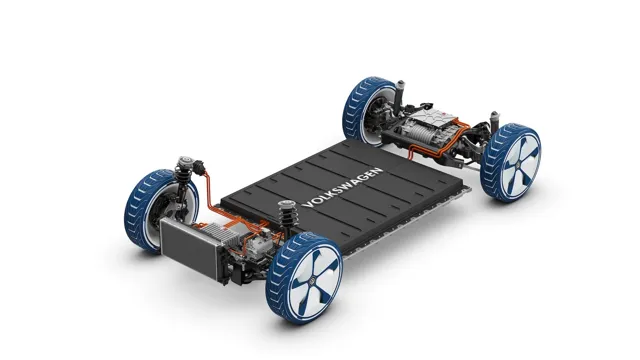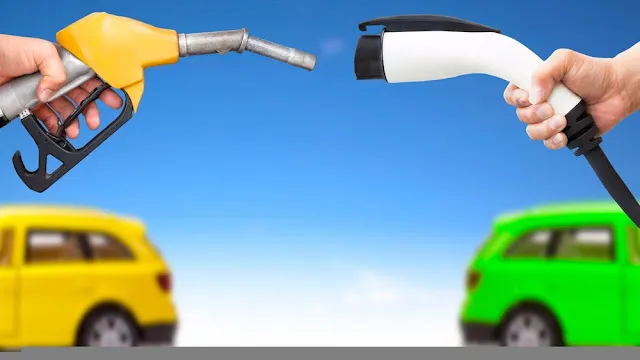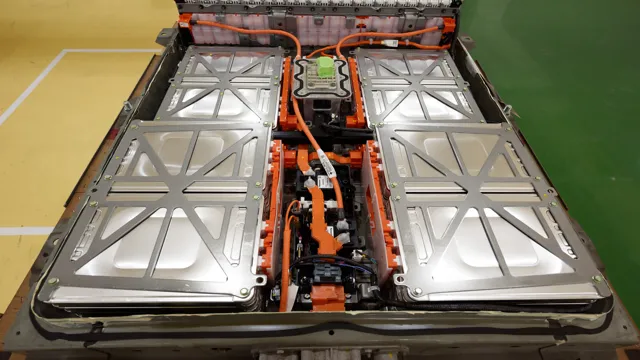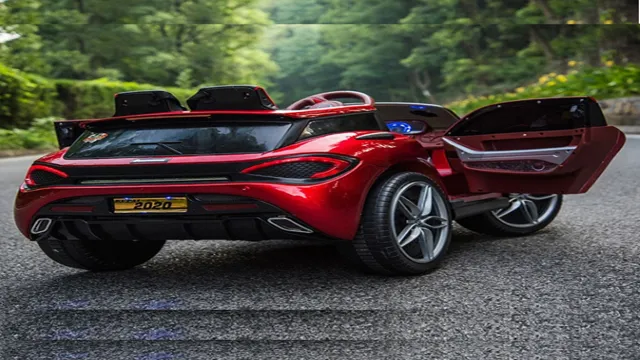The Shocking Truth: The Electric Car Battery Controversy Uncovered
Electric cars are the future of the automotive industry, as they offer an eco-friendly and cost-effective alternative to traditional gas guzzlers. However, the battery that powers these vehicles has been the subject of much controversy. With many concerns regarding the production, efficiency, and environmental impact of electric car batteries, the debate around their use continues to intensify.
In this blog post, we will explore the electric car battery controversy in detail, discussing key issues and arguments from both sides of the debate. Whether you’re a passionate supporter or a skeptic of electric vehicles, this post will provide you with the information you need to make an informed decision about this alternative mode of transportation. So, buckle up and get ready for an electrifying ride!
Battery Production and Sustainability
The electric car battery controversy lies in the production and sustainability of these power sources. While electric vehicles (EVs) are touted as a cleaner alternative to gas cars, the production of their batteries poses environmental challenges. The mining of metals such as lithium and cobalt, which are essential components of EV batteries, contributes to habitat destruction, water pollution, and carbon emissions.
Additionally, the disposal of used batteries poses a significant challenge since they cannot be easily recycled and have the potential to release harmful chemicals into the environment. However, efforts are being made to address these sustainability concerns. Companies are exploring alternative materials for battery production, and recycling initiatives are being implemented to increase the lifespan of battery components.
Nevertheless, the electric car battery controversy highlights the importance of considering the full life cycle of EVs when it comes to sustainability.
Impact of Mining Lithium on the Environment
Battery production is undeniably linked to sustainability, given the increasing demand for electric cars and lithium-ion batteries. However, the impact of mining lithium on the environment is often overlooked. Lithium mining can lead to water pollution, soil contamination, and air pollution through toxic chemical emissions.
In addition, mining operations can harm local wildlife and disrupt ecosystems. To minimize the environmental impact of lithium mining, the industry needs to develop sustainable mining practices, such as reducing waste and water usage, adopting renewable energy, and conducting thorough environmental impact assessments. By prioritizing sustainability in the production process, the battery industry can help to mitigate the environmental impact of lithium mining and work towards a more sustainable future.
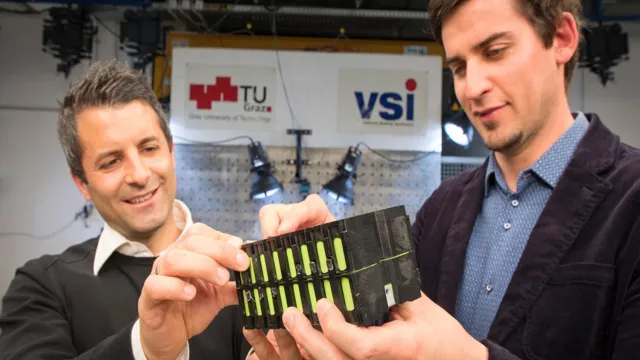
Recycling Challenges of Lithium-ion Batteries
Lithium-ion batteries are becoming increasingly popular in electronic devices and electric vehicles due to their higher energy density and longer lifespan than traditional batteries. However, the production of lithium-ion batteries contributes to environmental pollution, particularly in terms of carbon emissions. Recycling poses significant challenges for these batteries as well, especially since they contain valuable and hazardous metals, such as cobalt and nickel.
These materials must be separated, cleaned, and reused properly to ensure their sustainability. While recycling technologies exist, they are costly and have limited capacities. To address these challenges, efforts are being made to develop more sustainable and efficient approaches to battery production, including the use of alternative battery chemistries and materials.
By doing so, we can reduce our reliance on traditional lithium-ion batteries and minimize their impact on the environment.
Battery Range and Performance
Electric car battery controversy has been a hot topic for some time now. The main issue revolves around the battery range and performance of electric cars. While some people believe that electric cars are the way to go as they are eco-friendly, others argue that they are not practical due to their constrained range.
The truth is that electric car batteries have come a long way in terms of technology, and the range of some electric cars has increased significantly in recent years. However, some still believe that electric cars’ batteries are not powerful enough to compete with traditional gasoline-powered vehicles. As advancements in battery technology continue to be made, the debate around electric car battery controversy is likely to continue.
Are electric cars practical for long-distance driving or are they better suited for short city commutes? Only time will tell.
Debunking Misconceptions on Range Anxiety
When it comes to electric vehicles, one of the biggest concerns for many people is range anxiety. This is the fear that the car won’t be able to travel far enough on a single charge, leaving the driver stranded. However, misconceptions about battery performance can heighten this anxiety unnecessarily.
The truth is that battery range has improved significantly in recent years, with some vehicles having a range of over 300 miles on a single charge. Of course, factors such as driving style, weather conditions, and terrain can affect range. But by planning routes carefully and taking advantage of public charging stations, most EV drivers can comfortably go about their daily lives without worrying about running out of power.
So, don’t let range anxiety hold you back from making the switch to an electric vehicle – the technology has come a long way, and it’s not as limiting as you might think!
The Advancements in Battery Technology
The advancements in battery technology have truly revolutionized the way we use our electronic devices today. When it comes to battery range and performance, we’ve seen immense progress in recent years. Thanks to the development of new battery chemistries and materials, manufacturers have been able to create batteries that have a longer lifespan, a faster charging time, and higher energy density than ever before.
This means that our smartphones, laptops, and electric cars can go for longer periods without needing to be charged, making them far more convenient and efficient. With these advances, we’re also seeing a shift towards cleaner energy sources, such as electric vehicles, which are becoming more viable for everyday use. It’s safe to say that battery technology is set to play a major role in shaping the future of our world, and we can expect even more exciting innovations in the years to come.
Long-Term Battery Performance: Myth or Reality?
Long-Term Battery Performance: Myth or Reality? Battery range and performance have been the subject of much discussion and speculation in the world of electric vehicles. The idea that a battery can maintain its range and performance over an extended period seems too good to be true. However, with advancements in battery technology, this notion is becoming a reality.
Battery manufacturers are continuously developing batteries that can perform efficiently and last longer. Lithium-ion batteries, for instance, have demonstrated that they can maintain over 80% of their initial capacity even after thousands of charging cycles. With proper care and maintenance, electric vehicle owners can expect their batteries to retain their performance and range for a long time.
It is important to note, though, that no battery is immune to degradation. Factors such as temperature, usage, and charging habits can impact a battery’s lifespan and performance. Thus, it is crucial to follow the manufacturer’s guidelines and recommended practices to ensure maximum battery life.
In summary, while it may have been a myth in the past, long-term battery performance is becoming a reality with newer technologies, proper care and maintenance, and adherence to manufacturer guidelines.
Cost and Affordability
The electric car battery controversy is an ongoing topic that has sparked heated debates among car manufacturers, environmentalists, and the general public. One point of contention is the cost and affordability of electric car batteries. While proponents of electric cars argue that the technology is becoming more affordable with time, critics point out that the upfront cost of an electric car is significantly higher than that of a conventional gasoline-powered vehicle.
However, it’s important to note that electric car batteries have a longer lifespan and lower maintenance costs, which can ultimately offset the initial investment. Overall, the cost and affordability of electric car batteries remain a complicated issue that requires continued research and development to make this promising technology accessible to the masses and sustainable for the environment.
The Economic Viability of Electric Cars
When it comes to electric cars, one of the biggest concerns for consumers is cost and affordability. While electric cars may have a higher upfront cost compared to traditional gas-powered cars, they offer significant savings in the long run. Electric cars require less maintenance and have much lower fuel costs, making them a smarter investment overall.
Additionally, as the demand for electric cars increases, prices will inevitably come down. The government also offers incentives and tax credits for purchasing electric vehicles, making them more appealing to budget-conscious consumers. Overall, while electric cars may seem more expensive at first, they are a cost-effective and eco-friendly choice that can ultimately save consumers money in the long run.
The Government’s Role in the Electric Car Industry
When it comes to the electric car industry, the government plays a significant role in ensuring cost and affordability for consumers. One way the government does this is through offering tax incentives to those who purchase electric vehicles. These incentives can range from a few thousand dollars to even up to $7,500.
In addition to tax incentives, some states offer rebates or other financial incentives to encourage the adoption of electric cars. However, despite these efforts, the upfront cost of purchasing an electric car can still be significantly higher than that of a traditional gas-powered car. This is where the government’s role becomes even more critical.
By investing in research and development, the government can help drive down the production costs of electric cars, making them more affordable for consumers. It’s like starting a garden – the initial costs of seeds and tools may seem high, but once the garden grows, the return on investment in fresh produce can far outweigh those initial costs. The same applies to the electric car industry.
As the industry grows, the production costs will decrease, making electric cars more cost-effective for everyone.
Conclusion and Future Outlook
After researching the electric car battery controversy, I have to say, it’s a bit of a charged issue. On one hand, we have a promising technology that could drastically reduce carbon emissions and combat climate change. On the other hand, there are concerns about the environmental impact of mining materials for the batteries, the disposal of used batteries, and the potential for battery fires.
With so many factors to consider, it can be difficult to come to a definitive conclusion. However, what’s certain is that we need to continue researching and developing sustainable solutions to meet our transportation needs. Whether it’s through improving battery technology or alternative energy sources, we can’t afford to idly sit by while our planet faces one of its greatest challenges yet.
“
FAQs
What is the electric car battery controversy?
The electric car battery controversy refers to the debate surrounding the environmental impact and sustainability of the batteries used in electric cars.
Are electric car batteries bad for the environment?
While electric car batteries have a lower carbon footprint than internal combustion engines, their production and disposal can still have negative environmental impacts.
Can electric car batteries be recycled?
Yes, electric car batteries can be recycled. Recycling programs have been developed to recover valuable materials and reduce waste.
How long do electric car batteries last?
The lifespan of electric car batteries varies depending on the make and model. Some batteries can last up to 10 years, while others may need to be replaced after 5 years or less.



